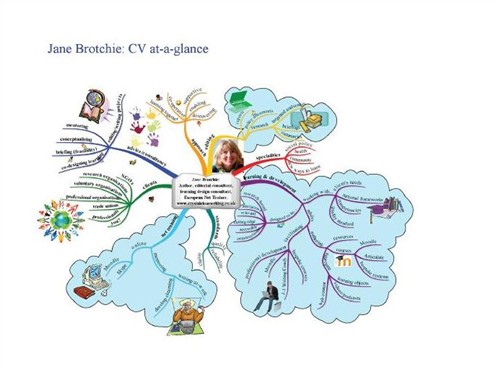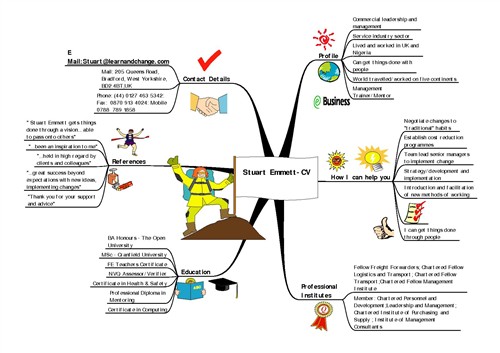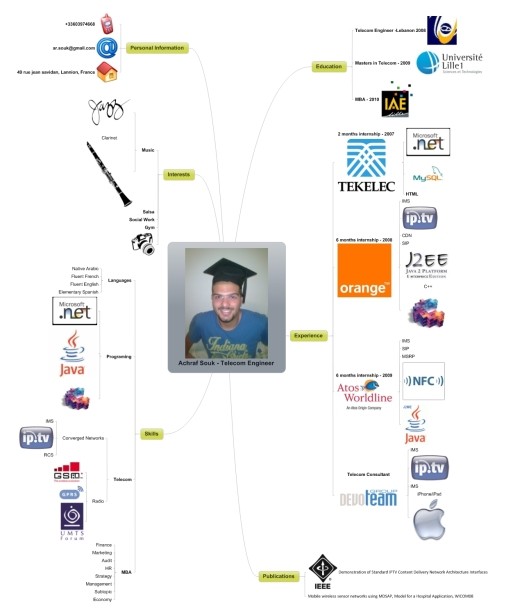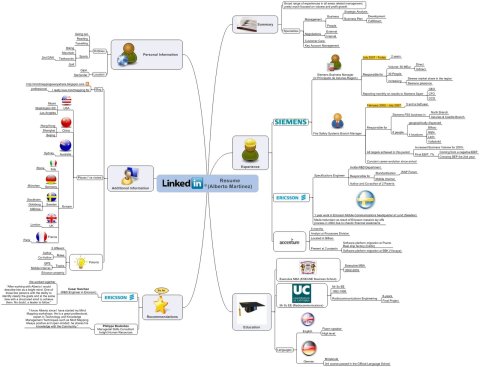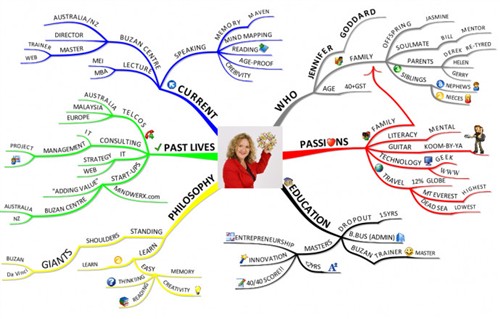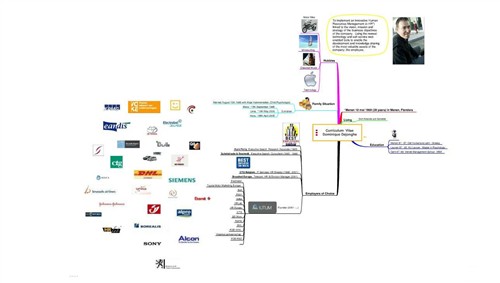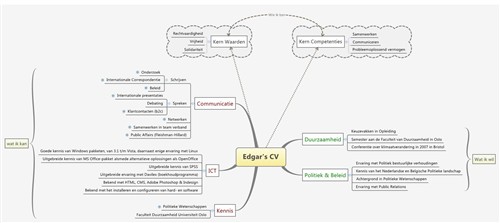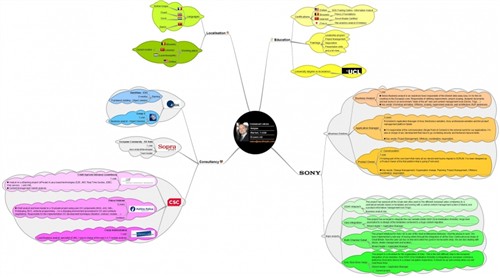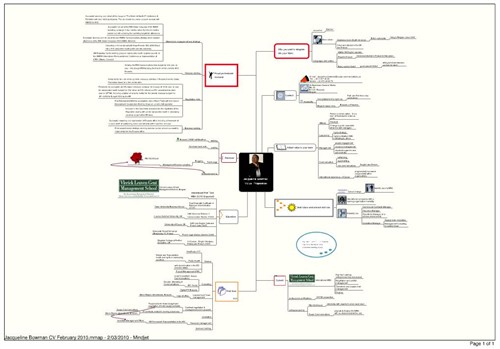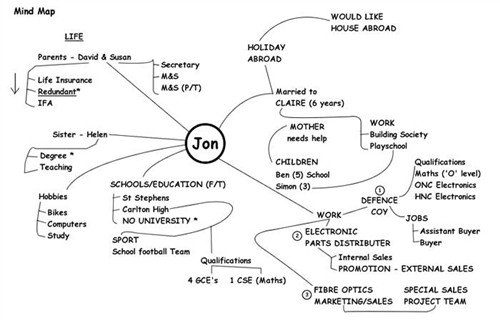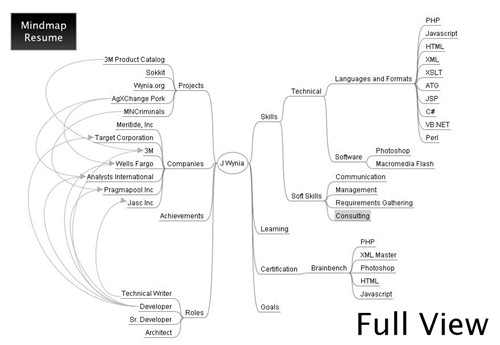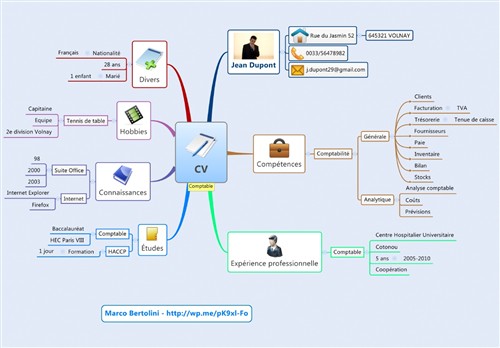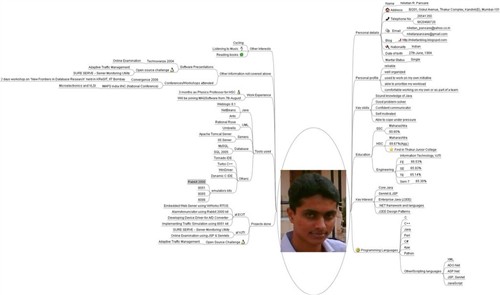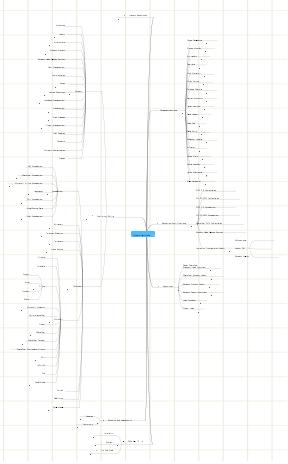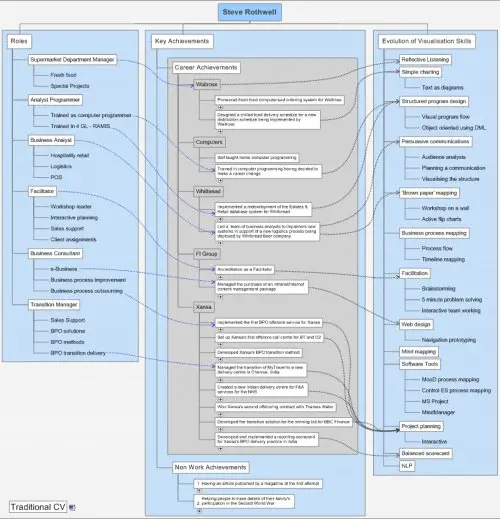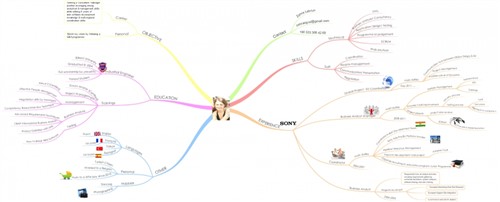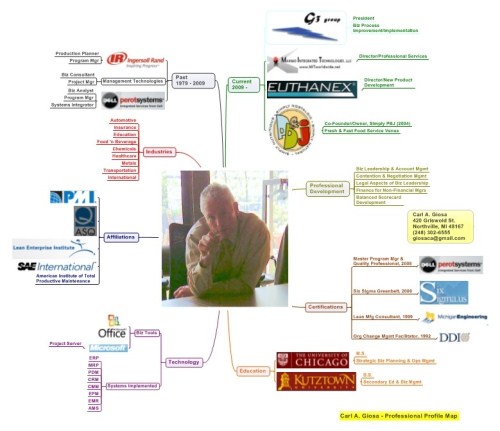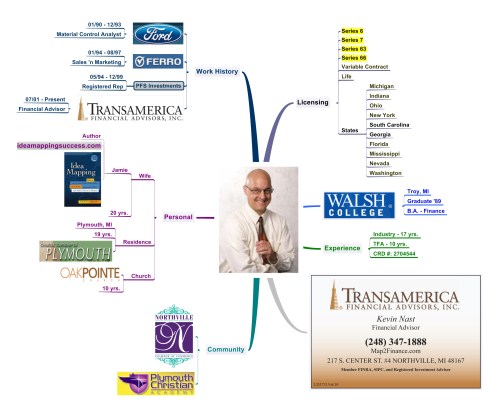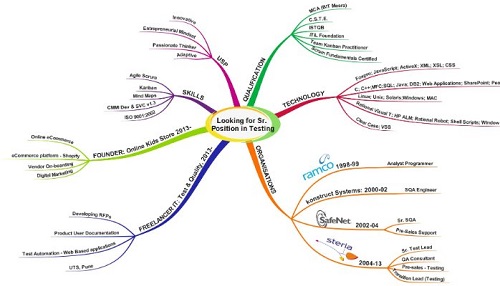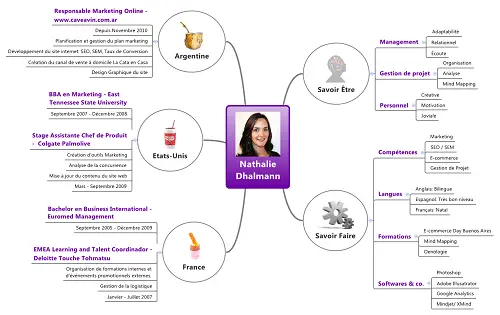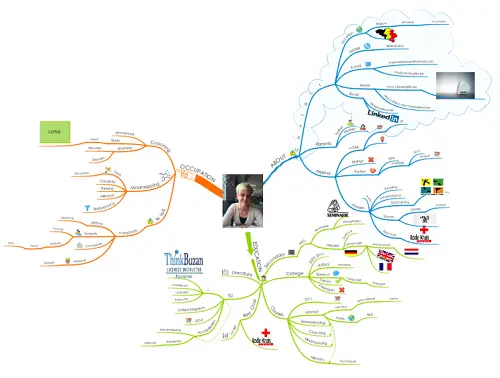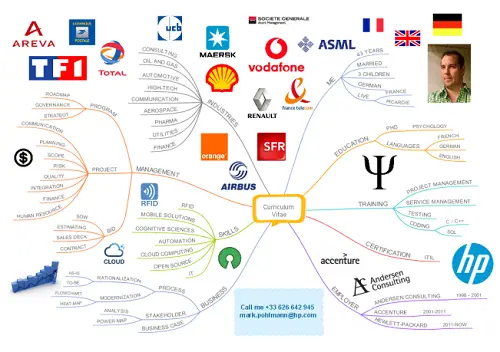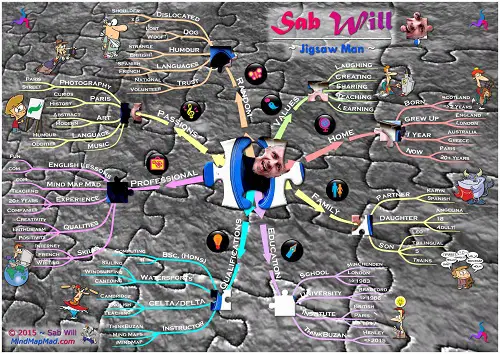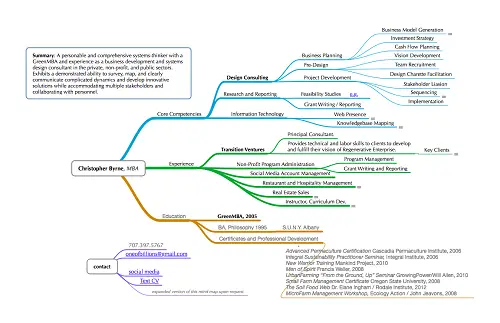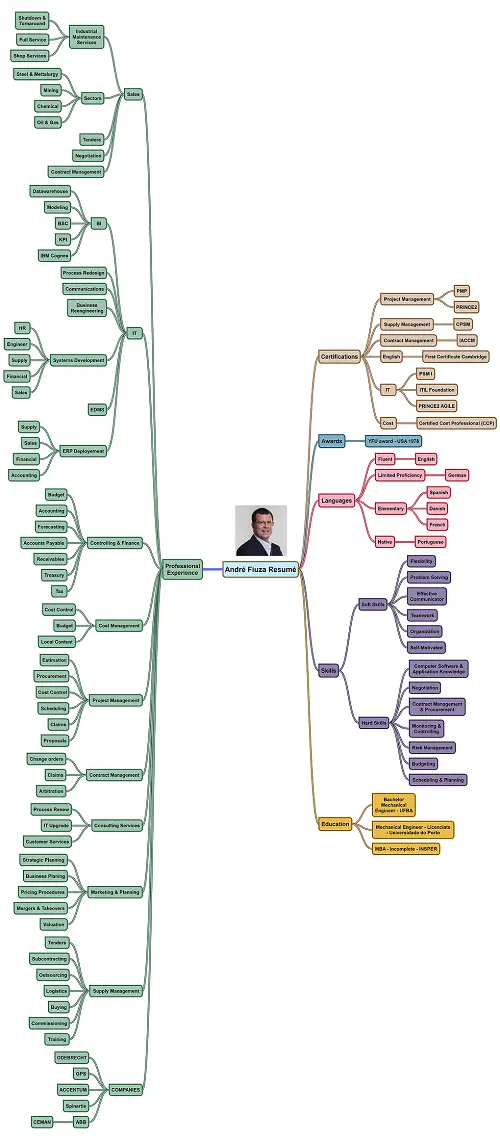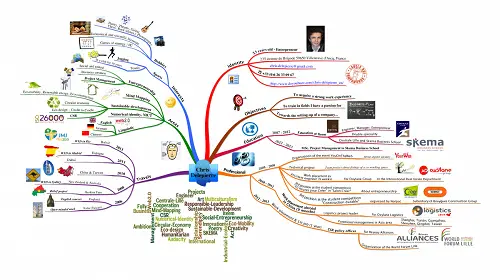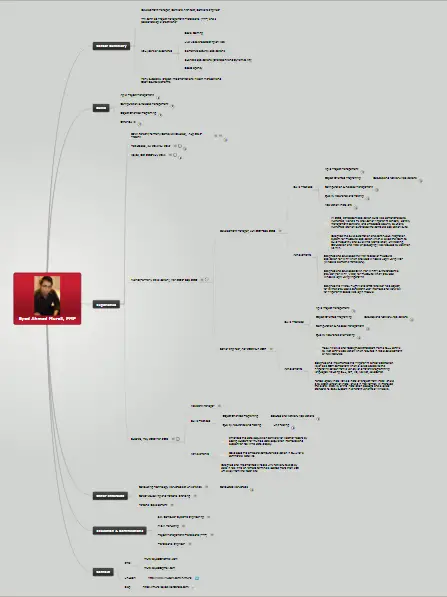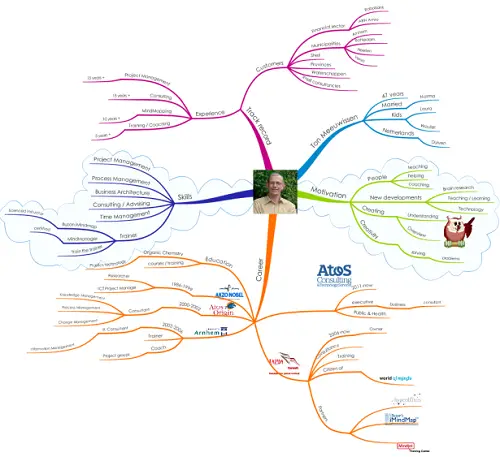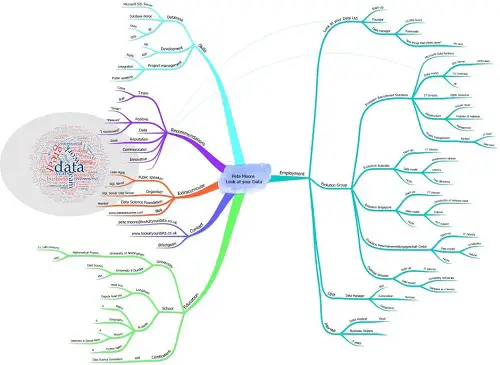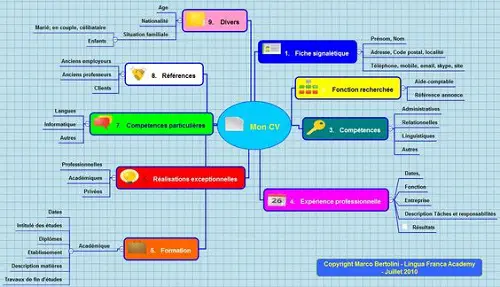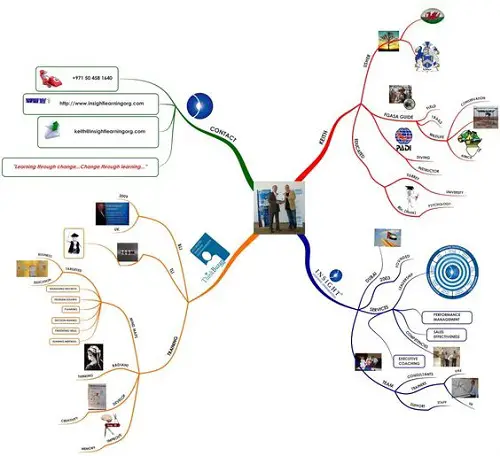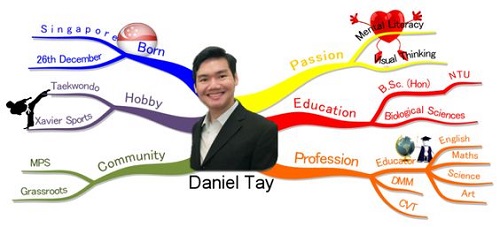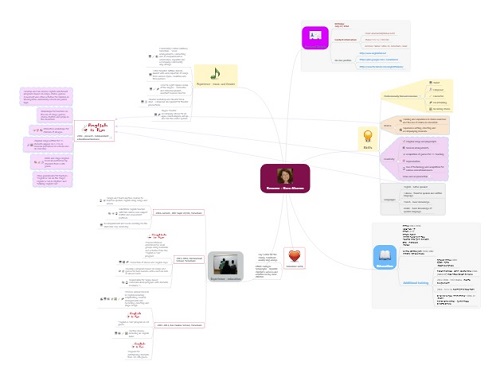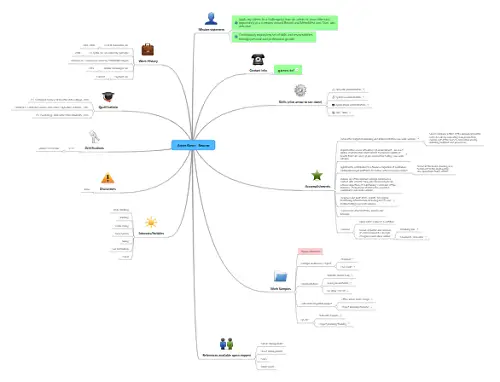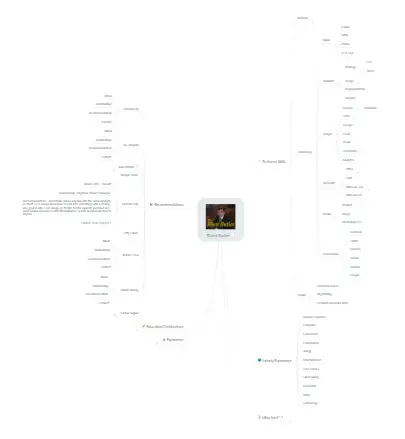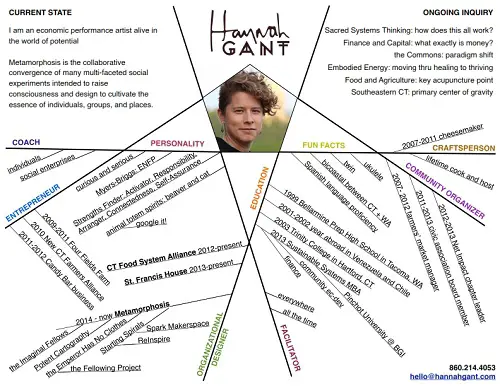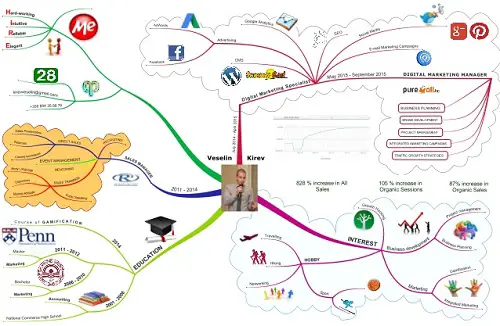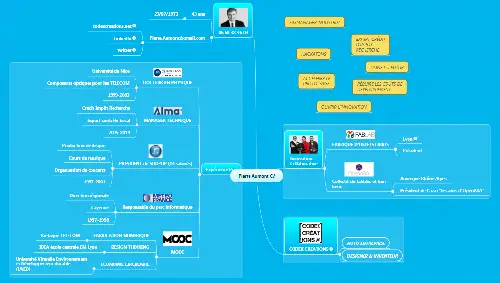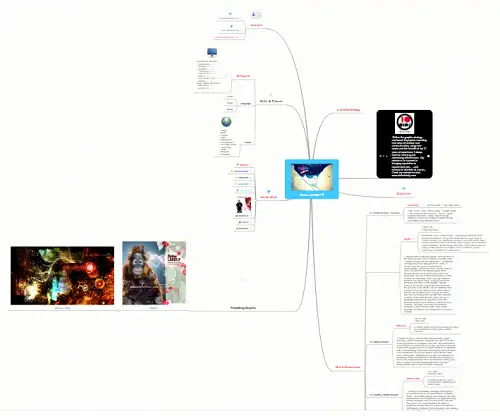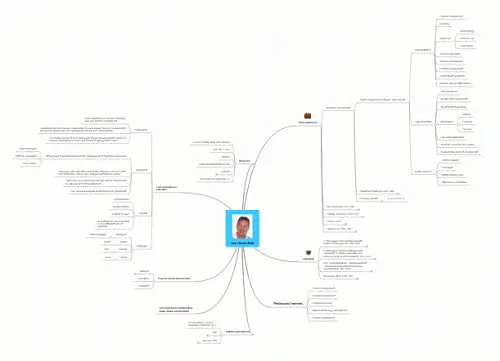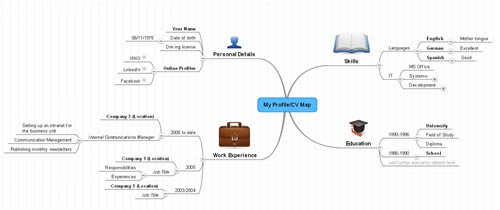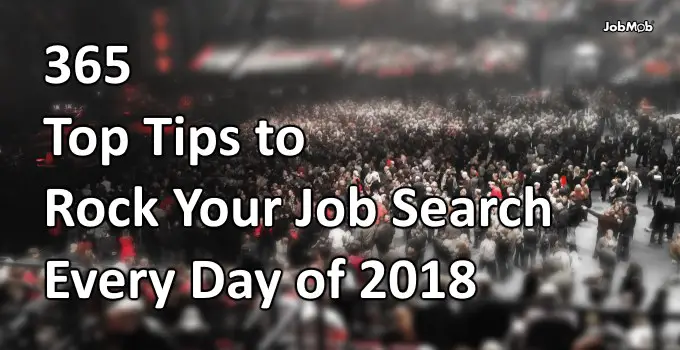Let these personal CV mind map examples guide your own job search.
I was never big on mind maps.
I preferred making prioritized checklists and to do lists with sub-lists when needed. Back in 2002, I organized all of our wedding plans using a lists app on my Palm Treo and it was a thing of beauty, if I say so myself.
When I first tried mind mapping, my mind maps were always the same- one center node that branched off to a list of nodes, and each one had its own sub-list of nodes.
Sound familiar?
Since I wasn't doing it properly, I wasn't getting the benefits, so it's no surprise that I didn't find them very useful.
But I came back to them a few years ago, and the freedom of branching out in all directions was really liberating. I don't mind map every day, but when I'm in a strategic mood, they're now my go-to tool.
Note: There is a poll embedded within this post, please visit the site to participate in this post's poll.How can mind mapping help my job search?
You can use mind maps to:
1. Review your career to date, such as for preparing a work portfolio
2. Snapshot your network of contacts, or at least the relevant people for your current job search
3. Brainstorm, plan and track your job search, right down to companies to target
4. Prepare for an upcoming job interview, including questions to ask
5. Sell yourself in a job interview
And of course, you can use a mind map about yourself as a creative resume.
Working on my CV as a mindmap…
— Robert Strauch
(@straurob) January 28, 2017
Not necessarily to send to recruiters, but definitely as a story-telling aid when pitching your accomplishments to anyone who might find a more formal resume boring.
Here's a large group of people who've done just that.
This is how to write a mind map of a CV
You could say these are mind maps people created about “me, I and myself.”
Jane Brotchie
Stuart Emmett
Achraf Souk
Alberto Martinez
Jennifer Goddard
Dominique Dejonghe
Edgar
Emmanuel Lebrun
Jacqueline Bowman
Jean Pascal
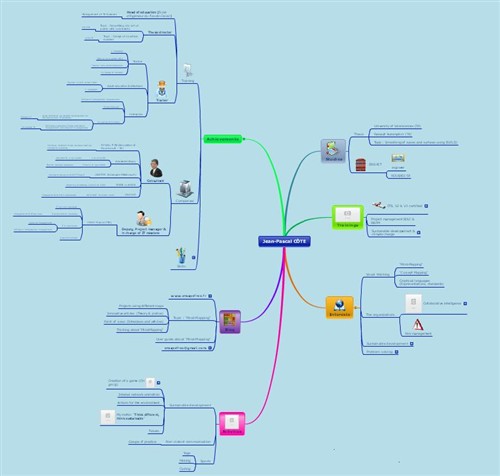
Jon
J. Wynia
Lars Dahlin
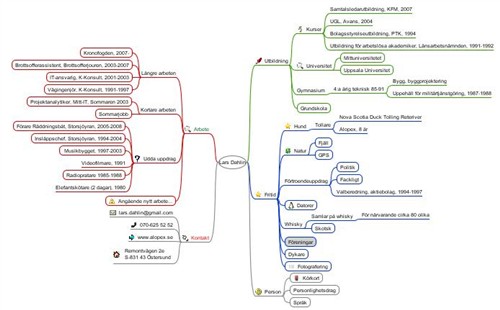
Marco Bertolini
Niketan Pansare
Ricclo
Richard Harbridge
Skanda Kumarasingam
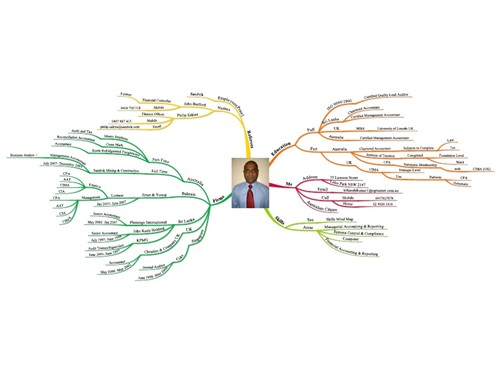
Steve Rothwell
Vincent Birlouez
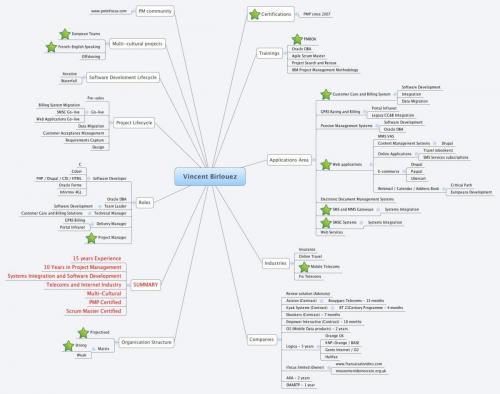
Zehra Oguz Lebrun
Carl Giosa
Eric Giosa
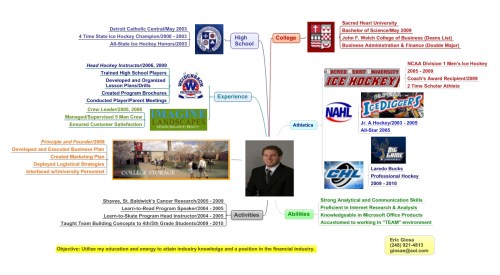
Kevin Nast
Maneesh Dutt
Nathalie Dhalmann
Marina De Roover
Mark Pohlmann
Sab Will
Christopher Byrne
Andre Fiuza
Chris Delepierre
Syed Ahmad Mursil
Ton Meeuwissen
Pete Moore
Marina Massengo
Keith
Daniel Tay
Kara Aharon
Anton Gurov
Rhett Butler
Hannah Gant
Veselin Kirev
Pierre Aumont
Didier Lahely
Lars Henrik Dahl
Mohamed Moustafa
Mohamed is a Tony Buzan Licensed Instructor, so he knows mind mapping.
Bonus 1: Mind mapping tools
If you'd like to mind map your own resume, here are some free tools:
- Freemind – arguably the best known free, downloadable mind maping software.
- iMindmap – the only tool recommended by Tony Buzan, inventor of Mind Mapping.
- Freeplane – a better Freemind than Freemind, I switched to using this a few years ago.
- Xmind – nice user inteface and available in 7 languages.
- bubbl.us – cute tool, lets you make the mind maps in your browser window.
- Biggerplate – thousands of free mind map templates and examples
MindMeister is another online mind mapping site with very handy features. Their basic/free plan is very limited (you're only allowed to save 3 mind maps) but they provide a free resume mind map template so you can get started quickly:
Bonus 2: The Power of a Mind to Map
If you enjoyed this gallery, you'll also enjoy The 25 Most Creative Designer Resumes You’ll See This Year.
Subscribe to JobMob via RSS or email and follow me on Twitter for more ways to use mind maps in your job search.
via JobMob More Information Here..


